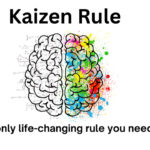Round Rock Journal – The productivity world often glorifies the “wake up at 4 AM” mantra. But let’s be honest—not everyone thrives in the pre-dawn hours. While some find early mornings energizing, others feel drained, unproductive, or simply misaligned. The truth is, our biological and psychological wiring plays a massive role in how we function best, especially in the morning.
Why Personality Type Matters in Morning Routines
Not all minds are built the same. Introverts recharge differently than extroverts. Planners (J types) crave structure, while perceivers (P types) embrace flexibility. Recognizing your MBTI personality type—like INTJ, ENFP, or ISFP—can transform your morning from a forced habit into a personalized ritual that actually works.
“Baca juga: Visual Technology in E-Commerce: Showcasing Products Interactively and Realistically“
The INTJ Morning – Structure with Strategic Intent
INTJs love order, planning, and progress. Their mornings should reflect purpose and efficiency. A great start might include reviewing goals, reading or journaling for mental clarity, and avoiding unnecessary social interaction early on. Waking up at 6 or 7 AM with a clear to-do list aligns better with their focus-driven mindset than an arbitrary 4 AM alarm.
The ENFP Morning – Freedom, Fun, and Flexibility
ENFPs are spontaneous, imaginative, and thrive on emotional connection. For them, a rigid morning schedule feels suffocating. Instead of pushing themselves into cold showers or strict meditations, they flourish with music, visualizations, creative journaling, or a nature walk. Allowing room for choice energizes their day and sparks innovation.
INFJ and INFP Types – The Reflective Awakening
These introspective personalities need quiet and meaning in their mornings. A mindful cup of tea, spiritual reflection, or soft yoga can help them center themselves. INFJs may benefit from early hours for reflection, while INFPs might prefer easing into the day slowly. Both should avoid digital noise early in the day.
ESTJ and ENTJ – Commanding Mornings with Momentum
Driven and action-oriented, ESTJs and ENTJs naturally gravitate toward structured mornings. They often enjoy starting the day with workouts, podcasts, and detailed planning sessions. Waking early works well—but only if it enhances productivity and doesn’t drain them. They must avoid over-scheduling and leave space for adaptability.
ISFP and ESFP – Energizing Through Senses and Spontaneity
These types flourish through sensory input and emotional expression. A motivating playlist, stretching, or dancing in the kitchen can boost their mood. They’re not naturally drawn to routines, so keeping things light and fun makes their mornings sustainable. A late 7–8 AM start may be more aligned with their creative nature.
Should Everyone Wake Up at 5 AM? Not Necessarily
The glorification of ultra-early routines can be misleading. Our productivity is not measured by the time we wake up but by how well we align our habits with our nature. Chronotypes, personality types, and lifestyle all influence when and how we function best. There’s no “wrong” way to start your day—just the one that fits you.
Personalizing Your Morning Routine – Where to Start
Begin with self-awareness. Identify your MBTI personality type and assess what energizes or drains you. Are you reflective, spontaneous, structured, or fluid? Use that insight to build a flexible morning framework. Try different wake times and activities. Most importantly, don’t copy routines that don’t feel authentic.


